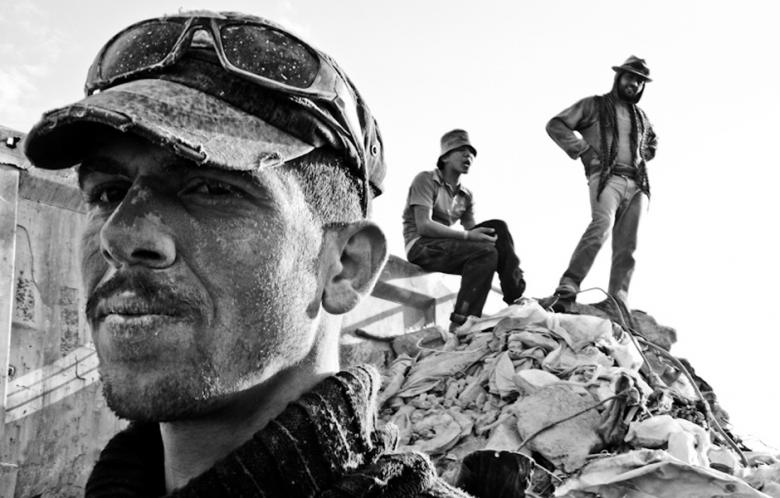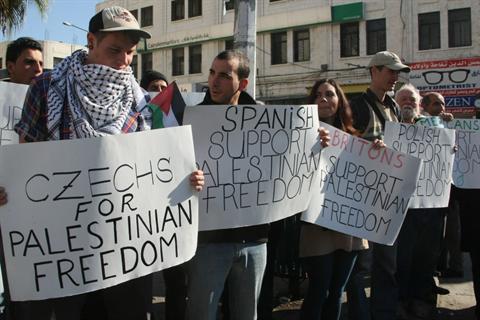-
Gaza: Rebuilding from rubble
by Ruqaya Izzidien 29 November 2011 | Al Akhbar English Despite Israel’s blockade on building materials entering the Gaza Strip, local entrepreneurs have come up with a way to turn destruction into reconstruction by recycling rubble into construction material. The bedroom of Nasser Abu Said features two-meter holes punched by Israeli rockets and his front […]
-
‘A Needle in the Binding’: The legacy of Palestinian prisoner self-education in Israeli prisons
by Ben Lorber and Khalil Ashour 29 November 2011 | International Solidarity Movement, West Bank On the third floor of the Nablus Municipality Library, there sits a room of over 8,000 books set apart from the rest. Many of these books are very old and tattered; many of them, in lieu of a normal face, […]
-
Nablus comes together for International Solidarity Day
by Wahed Rejol 29 November 2011 | International Solidarity Movement, West Bank Today in the Occupied West Bank, Palestinians and internationals gathered in Nablus to participate in an international day of support for Palestine. In 1977 the United Nations General Assembly voted to declare November 29 as the The International Day of Solidarity with the Palestinian […]
Action Alert An Nabi Saleh Apartheid Wall Arrests BDS Bethlehem Bil'in Cast Lead Demonstration Denial of Entry Ethnic Cleansing Farmers Gaza Global Actions Hebron House Demolition International law Israeli Army Jerusalem Live Ammunition Nablus Ni'lin Prisoner Ramallah Rubber-coated steel bullets Settlement Settlers Settler violence Tear-Gas Canister Video


